In the past decade there has been a huge increase in the level of corporate involvement in skateboarding, and we may be returning to a form of skateboarding that Steve Rocco, Mike Vallely, Mark Gonzales, and others desperately tried to escape in the early 1990’s.
New members within the skate community, like Eric Wiseman, Phil Knight, Herbert Hainer, the Maloofs, Gary Ream, William Sweedler, Neil Cole, and Andrew Kline, are all challenging what it means to be a skateboarder and how we skateboard. These men (that have probably never stepped foot on a skateboard) run or are the money behind VF Corp [Vans], Nike, Adidas, Maloof Money Cup, Woodward, Sequential Brands [DVS], Iconix [Zoo York], and Park Lane Sports Investment Banking [Street League]. Through their economic capital, and power outside of skateboarding they have been able to force their way into powerful positions within skateboarding and are able to directly profit off of our activity. Should we care if non-skaters are allowed to hold powerful positions in our culture? Should we care if skaters associate with these people and buy their products? Will it change how we skateboard, how we view ourselves, and how we view the world?
Of course! As skateboarders we all share social space and none of us exist in a vacuum (in some way all of our actions affect the skate culture as a whole and every skater within it). Within this social space our collective actions have produced and emphasized how important creativity, autonomy, cooperation, and fun are within skateboarding. These values make up the dominant ideology within skateboarding, which shapes our identities, how we view the world and how we act within it. But as more and more corporations enter the activity, they are challenging and attempting to shift the dominant ideology and performance of skateboarding into something that allows them to rationally fulfill their sole purpose: the pursuit of profit. If they are successful it may not change the ideology or performance of skaters like myself that have been involved in the activity for many years, but it will change the ideology, the space, and economics of skateboarding for younger skaters, and alienate older skaters from a social world they helped create and maintain until it was invaded by and sold to outsiders.
Many of these outsiders are attempting to run skateboarding with the same principles that drive many modern corporations, which are completely incompatible with street-skating as we know it. As George Ritzer points out in The McDonaldization of Society, businesses attempt to operate in an extremely efficient fashion. They focus on making everything quantifiable (skatemetrics) rather than focusing on creating subjective quality (“best” video part), they want everything to be predictable (i.e. standardized, the same experience every time), and they want all aspects of a business or activity to be easily controlled, basically the antithesis of what skateboarding is today. As the corporation’s values become more and more apart of skateboarding and influence the ideologies of individual skaters, the greater the potential that our activity will fundamentally change. Skateboarding won’t be like the activity we all know today, instead it will have an ideology and a performance similar to that of football, or, as Rob Dyrdek is praying for, the UFC.
If corporations continue to gain influence within our culture the dominant form of skateboarding may move from the streets, where it is difficult to control or directly profit off of, into the contained space of the park. Additionally the skate video may also fall to the wayside. Why spend the money to send a skate team to Barcelona for three weeks to film ten tricks, when you can fly one skater to Gilbert, AZ for a couple of days and have your logo seen throughout the world on ESPN?
Instead of inefficiently, creatively, and collaboratively creating skate videos, skaters will efficiently and competitively enter into the highly predictable, standardized, quantifiable, and controllable world of mega-contests. In this social-world, there is no time for a skater to push himself spending hours trying to land a trick, because it is inefficient. There is little room for creativity (i.e. no backside 50-50 finger-flip) because, “it isn’t good strategy.” And there is no reason to seek out new skate spots as it more efficient for all skate contests to take place in the same stylized spaces. Whether you are in Gilbert or Toronto you can watch Chaz Ortiz jump down the exact same 10 stair. If corporate skating begins to dominate there will be little room left for the skating that Louie Barletta, Chris “Mango” Milic, or Jeff Stevens do, there will only be room for the (amazing, but) standardized and predictable skating of Greg Lutzka, Ryan Sheckler, and Nyjah Houston.
”Skateboarding is separating into two poles: one where a few businesses and a very small group of skaters are making lots of money, while everyone else is fucked.”
A strong corporate presence within our culture will change the economics of skateboarding. As we have seen in the past seven years, Nike and Adidas’s presence has escalated the number of skater owned skate shoe companies that have gone out of business, which limits the ability of skaters to influence skateboarding. Skater owned companies are in dire economic situations, not because of natural fluctuations within the skateboard market, but because of the imbalance of economic power within skateboarding that is evident in a post-Consolidunk era.
The entrance of Nike, Adidas, and other mega-corporations, has created a situation similar to what many popular but small coffee shops faced when dealing with Starbucks. Starbucks would open across the street from a local coffee shop, and even if the local coffee shop was doing well prior to Starbucks entrance, the small shops couldn’t afford to operate in such close proximity to a Starbucks “Café,” which could afford to run at a loss, dump huge amounts of money into advertisements and promotions, and do huge amounts of market research on potential customers because of its deep pockets. Eventually the small café would go under, which allowed Starbucks to dominate the local market, not because their product was superior, but because of their economic might (see Naomi Klien’s book No Logo and Ocean Howell’s “Extreme Market Research”).
Corporations are also changing the idea of what skaters think they deserve to be paid, how much profit companies… err shareholders should expect to profit off them, and how little corporations need to invest into the culture as a whole. It has become “common sense” that Chris Cole and other mega-stars deserve to make an average of $40,000 per month, while many pros pull a salary much closer to $2000 a month, or are being dropped in order to pay for the mega-stars contracts. It has become reasonable that the publicly traded corporation Zumiez does hundreds of millions in sales in each year, but doesn’t sponsor one skater.
And we are all amazed that the Maloofs are willing to put up a $500,000 cash prize, when in reality $500,000 is nothing when we consider the fact that the Maloof family is worth approximately 1 billion! 500k is 1/2000 of their net worth. This is the same as if the average American family (net worth 77K) was to “give away” $15 (I put give away in quotes since the Maloofs profit off the Money Cup and do not lose money). It seems that skateboarding is separating into two poles: one where a few businesses and a very small group of skaters are making lots of money, while everyone else is fucked. Sadly, our new ideology allows us to see this as normal, when in reality this is a very unusual state of affairs for skateboarding.
Finally, the large corporations buying, selling, and trading skate companies drastically affects the structure of the skateboard world. We recently saw this when Mark Ecko sold Zoo York to Iconix, who then decided it would improve their bottom line if they abandoned Zoo York’s “skate program” and dumped some of their riders.
Another example of the consequences of skateboard companies being bought and sold as commodities instead of being treated as pillars within the skateboard community is VF Corp’s acquisition of Timberland. VF Corp recently purchased Timberland, which had owned Ipath. A few months before VF Corp acquired Timberland Ipath was sold to Klone Lab, which lead to the restructuring of Ipath and the loss of a good portion of the team (as we see with Birdhouse’s new pro Ben Raybourn, the up-coming ams Ryan Reyes, Ryan Lay, and many others all leaving the company).
Corporations only value skate-companies and skateboarders in relation to how much capital they can generate for a group of shareholders, instead of valuing them as important parts of our culture. In the world of corporate skateboarding, skate-companies and skaters are simply commodities that are meant to be bought, profited from, and then thrown away.
If the corporations continue to increase their hold of skateboarding the ramifications for skateboarding in terms of culture, space, and economics will be huge. Instead of waiting to see Mango’s next creative part, the hijinks of the Baker Boys or the adventure of Wallner’s next skate-documentary we will be stuck watching Alex Klein attempt to sell competitive skateboarding to outsiders and Sheckler win at skateboarding by being the “best”. Rather than being anomalies these skaters will become the norm if we return to the world of corporate skateboarding, and we will end up in a worse spot than we were in the 1980s when Vallely, Rocco, Gonzales, and others all first rebelled against corporate control.
Related Posts
Comments
Popular
-
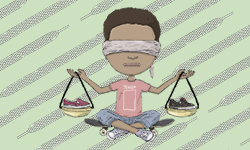 WHAT WOULD MAKE SKATERS DITCH THE BIG SHOE BRANDS?
WHAT WOULD MAKE SKATERS DITCH THE BIG SHOE BRANDS?
We asked younger skaters how small shoe brands could win back their business from the big budget behemoths.
-
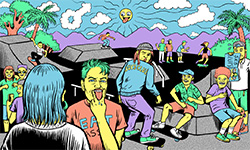 MY EXPERIENCES IN SKATEBOARDING
MY EXPERIENCES IN SKATEBOARDING
"I've been terrified of garnering the reputation of 'ramp-tramp' or 'pro-ho' just from spending time with skaters."
-
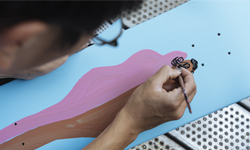 MEET UNITY, SKATEBOARDING’S MOST PROGRESSIVE CREW
MEET UNITY, SKATEBOARDING’S MOST PROGRESSIVE CREW
"Never has my gay life intersected with my skateboarding life. If anything, maybe I’d worked to pull them apart."
-
 WHAT HAPPENED TO GERSHON MOSLEY?
WHAT HAPPENED TO GERSHON MOSLEY?
From punching Andrew Reynolds, to not getting "pimped" by the industry, Gershon covers everything you wanted to know.
-
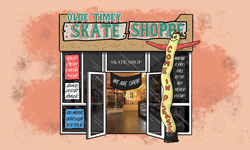 HOW CAN WE HELP KEEP SKATE SHOPS ALIVE?
HOW CAN WE HELP KEEP SKATE SHOPS ALIVE?
For years brands and skaters have blindly cried "support your local," but we asked shop owners about other ways we can all provide actual help.







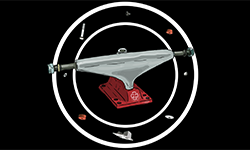
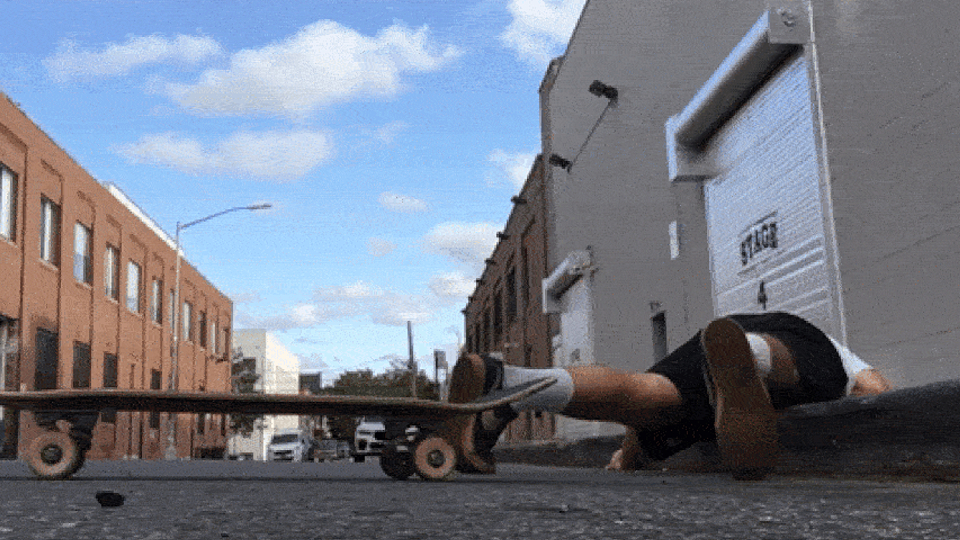
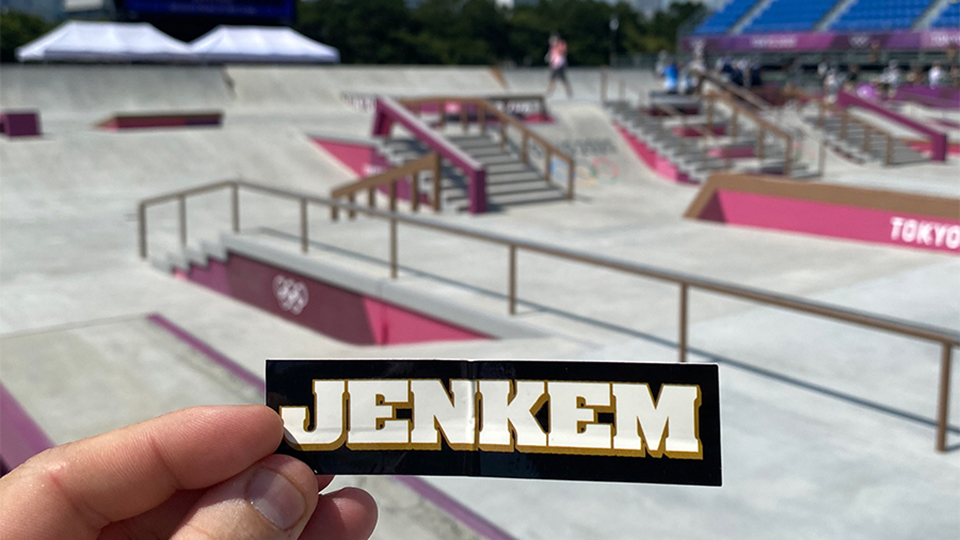
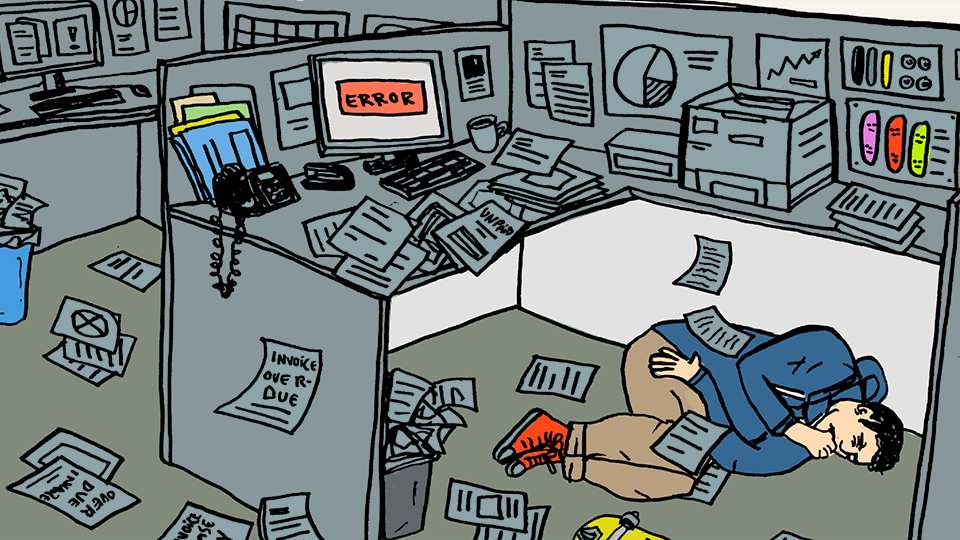
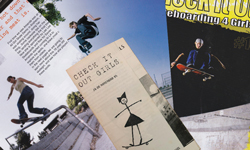
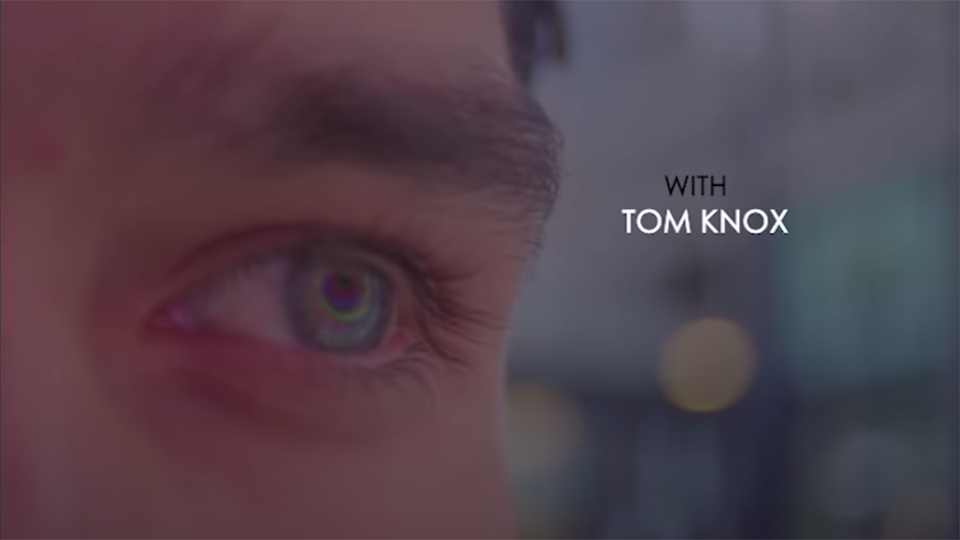
January 7, 2013 5:08 pm
To those that are concerned with which companies are worthy of supporting….you are wasting ridiculous amounts of energy with your female emotions.
In any sport, if international attention is gained….Here come the shot callers and the masonic CEO’s. Hate it or love it, but this world is built, and run by consumerism.
Boycotting companies and holding grudges against those individuals who have acquired “professional sport” incomes is not only illogical, but fueled by insecurity and jealously. I may not be partial to the corporate takeover….but If I had the talent of those top dogs, you bet your inexperienced ass I’d take that money. Would you prefer being broke? or having the resources to raise a family comfortably all due to something you love? Most of us hate our jobs….avoid projecting.
Don’t get me wrong, I’ve been woodpushin’ since ’97, I’ve breathed and seen the change. However, whenever you find yourself thinking/saying something along the lines of “that should be like this,” you’re trippin’. It is what it is, worry about things within your control (hey, maybe you are able to have an actual impact). Be yourself, choose good role models, and continue to skate what you know to be quality product. I don’t give a f*** if bones started sponsoring Britney Spears, or doing collaborations with coca-cola. Until STF’s loose their craftsmanship, those are all I ride.
I do share great sympathy for skater run businesses. Running a business and competing against professionally micro-managed publicly traded companies is a David and Goliath type situation. But when it comes down to it, if those in charge of small companies fail in their attempts to market or to sell, then they need to change their business approach. There is either success or failure. The more we point our fingers, the easier it becomes to enter the perspective of a victim. Look what diamond hardware turned into…..
No hate to any true border. I just suggest that acting like a victim won’t get you anywhere.
Long live skateboarding, and much love and respect to all those out there who are responsible for helping the true image stay alive. No matter how much the elites try to change everything, the core and fundamentals are set in stone. Peace.
February 7, 2013 1:01 pm
its important to get the information out there! if you have a problem with that you are trippin!
February 25, 2013 12:30 pm
“Corporations” have already killed skateboarding. As soon as money becomes involved, the real heart and purity goes out the window.
The list is long and doesn’t just include big corporations, “independent” skateboard companies are just as guilty but hide it better and have marketing that connects with skateboarders better.